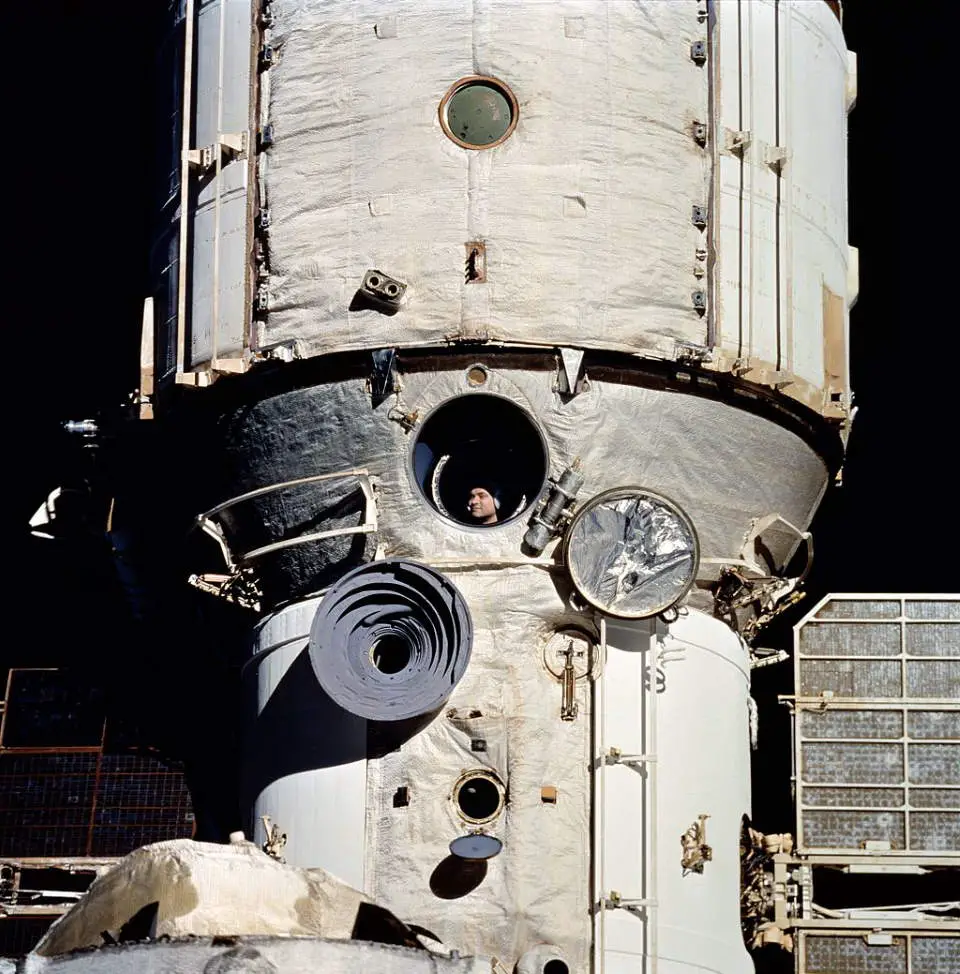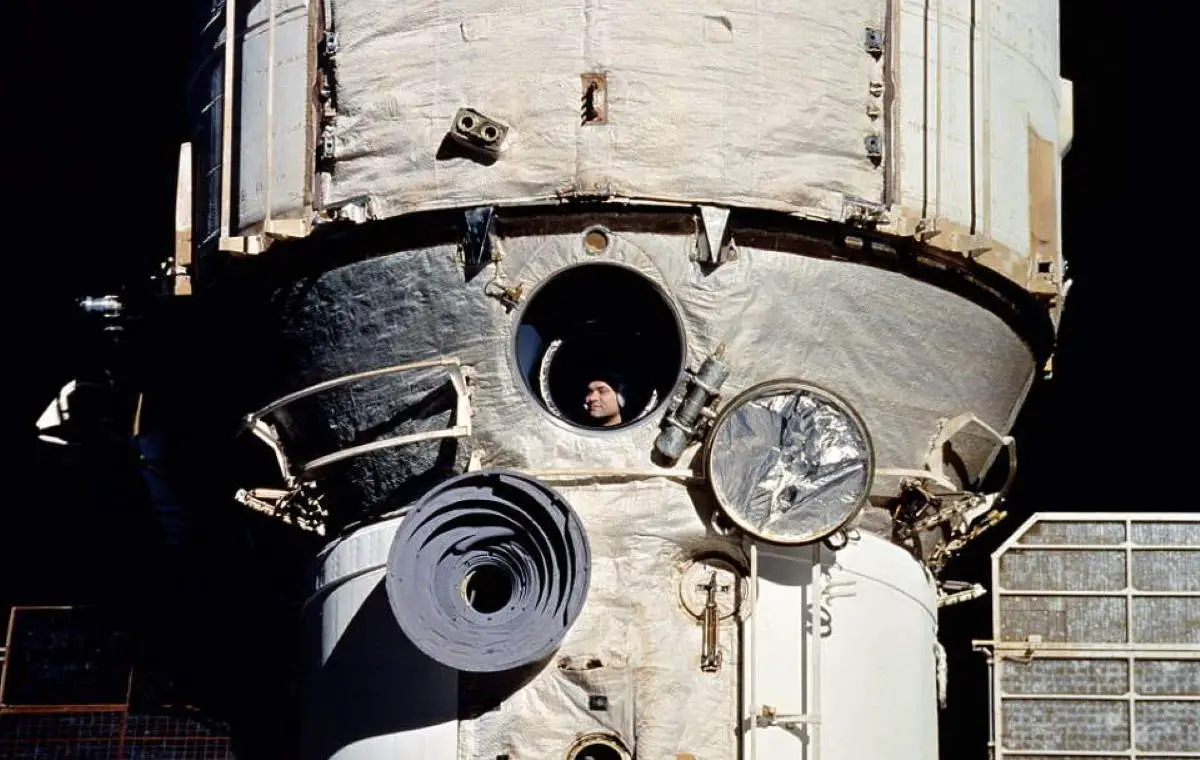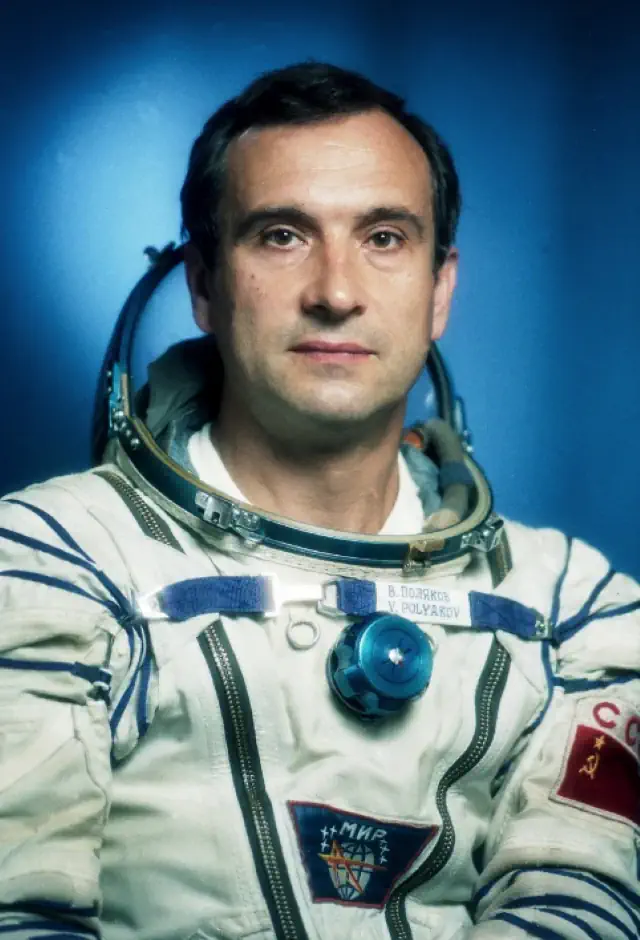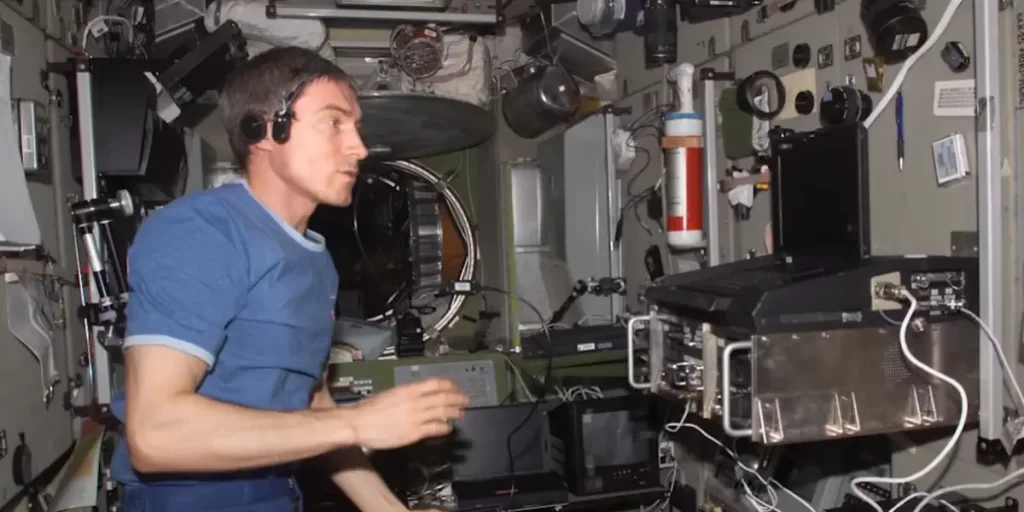On March 22, 1995, Russian cosmonaut Valeri Vladimirovich Polyakov returned to Earth from space aboard Soyuz TM-20. During this flight (it was Polyakov’s second spaceflight), he completed just over 7,000 orbits of the Earth. On 9 January 1995, after 366 days in space, Polyakov formally broke the spaceflight duration record previously set by the Soviet cosmonauts Vladimir Titov and Musa Manarov six years earlier. The previous record was 365 days 22 hours 38 minutes.
Upon returning to Earth, Polyakov spent 437 days, 17 hours, and 58 minutes in space and set the longest duration spaceflight record that still stands.
Today’s (March 22) story of what happened this day in Science, Technology, Astronomy, and Space Exploration history.
Valeri Polyakov
Polyakov was born in Tula in the USSR on 27 April 1942. He actually born Valeri Ivanovich Korshunov but legally changed his name after being adopted by his stepfather in 1957.
After graduating from the 1st Moscow Medical Institute with a doctoral degree, he enrolled in the Institute of Medical and Biological Problems, Ministry of Public Health, Moscow, where he specialized in astronautics medicine.
He was selected as a cosmonaut in Medical Group 3 on 22 March 1972. His first flight into space occurred on Soyuz TM-6 on August 29, 1988. After staying aboard the Mir space station and conducting research for 240 days, Polyakov returned to Earth aboard Soyuz TM-7 on April 27, 1989.
Polyakov sets the longest duration spaceflight record
On 8 January 1994, with the launch of the Soyuz TM-18 mission, Polyakov’s second spaceflight, the longest human spaceflight in history has begun.
TM-18 docked with the Mir space station on January 10, 1994. The three cosmonauts were:
- Viktor Afanasyev (commander, second spaceflight)
- Yury Usachov (flight engineer, first spaceflight)
- Valeri Polyakov (research cosmonaut, second and last spaceflight)
The crew did research work in space flight medicine aboard the Mir space station.
The primary goal of this long-duration spaceflight was to learn how the human body would respond to the micro-gravity environment on long-duration missions to Mars. Polyakov was a volunteer.
Polyakov spent 437 days, 17 hours, and 58 minutes aboard the Mir space station, and set the record for the longest time a person has stayed in space (longest-duration spaceflight). That record still stands.
He also broke the record for the most total time in space with 678 days, 16 hours, and 32 minutes, but this record was later broken by Sergey Avdeev on 28 August 1999 with 747 days, 14 hours, and 14 minutes.
The record for most time in space is currently held by the Russian cosmonaut Gennady Padalka with 878 days, 11 hours, and 31 minutes.

Longest duration spaceflight record for an American
Now the longest duration spaceflight record for an American belongs to Scott Kelly with 340.4 days, but Mark Vande Hei will break this record with 355 days in space as he isn’t expected to return to Earth until March 30, 2022.
Scott Kelly spent a total of 520 days in space.
With 665 days, 22 hours, and 22 minutes, Peggy Whitson holds the most time in space record for an American astronaut.
With 328.6 days, the American astronaut Christina Koch holds the “longest spaceflight by a woman” record.
Sources
- Valeri Polyakov on Wikipedia
- Soyuz TM-18 on Wikipedia
- List of spaceflight records on Wikipedia
- Moon Landings: All-Time List [1966-2025] - February 2, 2025
- What Is Max-Q and Why Is It Important During Rocket Launches? - January 16, 2025
- Top 10 Tallest Rockets Ever Launched [2025 Update] - January 16, 2025


